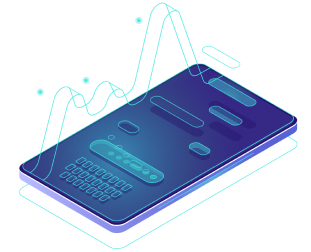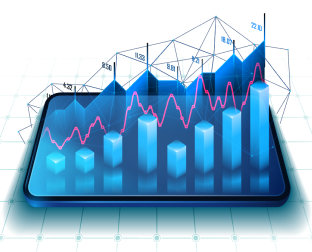Trading has become more visible and accessible, with platforms offering direct access to global markets and financial influencers sharing success stories online. But for UK beginners, the real challenge isn’t just opening an account. It’s understanding how to trade safely, legally, and with realistic expectations.
Online trading carries potential but also complexity. From market volatility to regulatory oversight, there are critical factors to grasp before placing your first trade. This guide outlines the practical steps and risks involved, helping UK-based newcomers build confidence from the start.
What is Online Trading?

Online trading means buying and selling financial assets through digital platforms. These assets can include UK-listed shares, global currencies, commodities like oil and gold, or index trackers such as the FTSE 100. What sets online trading apart is its convenience. Anyone with a computer or smartphone and internet access can take part.
That said, accessibility doesn’t mean simplicity. Trading involves real financial risk and often demands quick decisions. Unlike long-term investing, which focuses on steady growth over time, trading is typically a short-term strategy and is sensitive to market movements. UK novices must know that trading is about managing uncertainty as well as opportunity.
Read more about the best online broker for beginners in the UK in our other guide.
What Do You Need to Start Trading Online?
Starting online trading in the UK takes more than downloading an app. It’s more like learning to drive. You need the right tools, a grasp of the rules, and a clear head.
A fast and reliable internet connection is essential. Price changes can happen in seconds, and delays when placing or closing trades can cost money. Avoid public Wi-Fi and unstable mobile networks.
While mobile apps are convenient, trading is often easier on a desktop or laptop. A larger screen helps you read charts and place orders with more control.
Choose a platform regulated by the Financial Conduct Authority. This protects your funds and ensures the broker follows UK standards. You can check a firm’s status on the FCA register.
Markets behave differently. Shares suit long-term investors, while forex or CFDs may appeal to active traders. Make sure you understand the risks and pace of each.
Only trade with money you can afford to lose. That means funds set aside for this purpose, not rent, bills, or emergency savings.
Trading requires constant attention and effort. It takes time to follow the markets, test ideas, and reflect on your performance. Emotional control matters as much as strategy.
Most brokers offer practice accounts with virtual funds. They’re a smart way to build confidence before trading with real money.
The traders who last aren’t the boldest. They’re the ones who prepare well and stay disciplined. With the right setup and mindset, you’ll be in a stronger position from the start.
If you want to learn more about what is options trading – read our other article.
How to Sign Up with an Online Broker
Setting up an online trading account in the UK is a simple process, but it comes with a few important checks. Since trading platforms are regulated, you’ll be asked to verify your identity and confirm your understanding of financial risk.
Start by picking a platform that is authorised by the Financial Conduct Authority. FCA regulation ensures the broker follows rules on client protection and fair treatment. Also consider trading fees, platform tools, available markets, and user experience. Well-known names like IG, CMC Markets, and eToro have strong reputations, but some smaller platforms may offer features better suited to your goals.
You’ll need to provide standard personal information such as your name, home address, date of birth, and National Insurance number. Proof of identity (such as a passport or driving licence) and address (like a recent utility bill or bank statement) is also required. These checks help prevent fraud and are part of UK anti-money laundering regulations.
Before you can access certain products, your broker may ask questions about your income, trading knowledge, and experience. This is to ensure you understand the risks involved and are only offered products that match your profile. It’s not a test with right or wrong answers, but it helps shape your account access.
Once verified, you can deposit funds using a debit card, bank transfer, or other supported method. Some brokers may set minimum deposit amounts or charge small fees for certain payment types. Make sure the funding account is in your name to avoid compliance delays.
Most platforms offer demo accounts with virtual funds. Use this feature to test order types, explore market data, and understand how the interface works. Treat it as a dry run, as it’s the safest way to build confidence before using real capital.
Taking the time to understand each step reduces the chance of mistakes later on. A thoughtful setup can make all the difference when the markets start to move.
Learn more about UK CFD Brokers and UK CFD Trading Apps in our other guides.
How to Manage Risk When Trading Online
What often sets long-term traders apart from beginners isn’t how much they earn, but how they handle losses. While no strategy removes all risk, sensible risk controls help you stay consistent, especially when markets turn volatile.

Understand Leverage
Leverage lets you take a larger position in the market than the amount of money you put down. While it can increase potential returns, it also magnifies losses. With 10:1 leverage, a 10% move against your position could wipe out your stake. Many new traders underestimate how fast this can happen. Begin with low leverage, and always check margin requirements carefully.

Use Stop-Loss Orders
A stop-loss order closes your trade automatically if the market moves beyond a set point. It helps limit losses without needing to watch every price change. It’s not a guarantee, but it adds structure to your risk control.
Limit Risk Per Trade

Experienced traders often keep the risk on a single trade to no more than 1–2% of their total account balance. For someone with £1,000, that works out at around £10–£20 per trade. Keeping risks this small helps prevent any single loss from doing serious damage to your overall capital.
Keep a Trade Journal
Track each trade, what you did, why you did it, and the outcome. Patterns will emerge over time, helping you spot mistakes and refine your approach.
Monitor Market Events

Markets often react sharply to news like interest rate changes or company results. Staying informed helps you manage risk and avoid being caught off guard. Many platforms offer built-in economic calendars and alerts.
Managing risk isn’t about avoiding every loss. It’s about staying in control so losses remain manageable, keeping you in the game for the long term.
Learn more about UK Forex Trading Apps, UK Forex Brokers and Forex DMA Brokers in our other guides.
FAQ
Stick to FCA-regulated brokers and avoid unsolicited offers on social media or email. If something promises “guaranteed” returns or urges you to act quickly, it’s likely a scam. Always verify a firm’s status on the FCA register.
Yes, online trading is legal and regulated by the Financial Conduct Authority. As long as your broker is registered with the FCA, you’re operating within the law. Illegal activity typically involves unregulated platforms or deceptive schemes.
No formal licence is required for personal trading. However, some brokers may restrict access to complex products like derivatives unless you pass a suitability test. If you plan to manage money for others, different rules apply.
Most platforms offer shares, ETFs, forex pairs, indices, cryptocurrencies, and commodities. Some also allow CFDs and options. Each has different risk levels, trading hours, and cost structures.
Yes. Gains from trading are subject to Capital Gains Tax (CGT) once they exceed the annual allowance. Using an ISA can reduce or remove this liability, though not every product qualifies. It’s important to keep accurate records of your trades and, if in doubt, seek advice from a tax professional.
The Financial Conduct Authority (FCA) is the UK’s financial regulator, responsible for overseeing trading platforms and protecting consumers. It sets strict rules around transparency, fair treatment, and client fund protection. Choosing an FCA-regulated broker helps reduce the risk of fraud and ensures you’re trading within a trusted framework. To understand the FCA’s role in more detail, read this overview of the UK’s Financial Conduct Authority.
To learn more about best trading app in the UK, please read our other guide.
Conclusion
Online trading can be worthwhile, but it demands discipline. It’s not about chasing fast gains – it’s about managing risk, protecting your capital, and learning from every trade. Good traders build strong habits, stay calm under pressure, and focus on long-term progress. If you treat trading as a skill to develop, not a quick fix, you’ll be better prepared for the ups and downs of the market. In the end, steady decisions and clear thinking tend to outlast speed or luck.




The trade journal recommendation is gold. I resisted doing this for my first year because it felt tedious, but once I started tracking everything - entry reasons, emotions, market conditions, outcomes - I spotted patterns I'd never noticed. Turns out I was consistently over-trading on Friday afternoons when I was tired, and my win rate during those sessions was abysmal. Just cutting out Friday trading improved my overall profitability by about 15%.